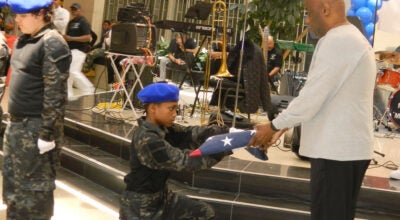Mayor on Confederate monuments: “We only have so much power”
Published 12:18 am Friday, August 18, 2017
SALISBURY — In the wake of violent weekend protests in Charlottesville, Virginia, over whether a Confederate war statue should be removed, officials from nine U.S. cities have ordered the removal of Confederate monuments from publicly owned property.
But Salisbury’s mayor, Karen Alexander, said Thursday that local officials in North Carolina are not legally allowed to do the same.
She referenced a law passed in 2015 called the Cultural History Artifact Management and Patriotism Act.
“What the state legislature did was to enact a law that said no statues, no public art could be moved or done away with. So it is not in the purview of cities to do that,” Alexander said.
The 2015 law prevents the removal, relocation or alteration of monuments, memorials or works of art without the permission of the North Carolina Historical Commission.
“We are chartered at the pleasure of the state, so we only have so much power,” Alexander said.
The 2015 legislation came in the wake of a shooting in Charleston, South Carolina, in which then-21-year-old Dylann Roof killed nine people at a predominantly black church.
Roof was later identified as a white supremacist, which spurred a movement to remove monuments that were related to white supremacy, including Confederate memorials.
Former Gov. Pat McCrory signed the bill to protect monuments into law in July 2015, saying, “The protection of our heritage is a matter of statewide significance to ensure that our rich history will always be preserved and remembered for generations to come,” according to the North Carolina News Network.
In a post on the website Medium on Tuesday, Gov. Roy Cooper said he hopes to repeal the 2015 law, saying that “cities, counties and the state must have the authority and opportunity to make these decisions.”
Cooper said he had already spoken with the Department of Natural and Cultural Resources about how much it would cost to move the state’s Confederate monuments into museums.
“Our Civil War history is important, but it belongs in textbooks and museums — not a place of allegiance on our Capitol grounds,” Cooper wrote.
Protesters in Durham on Monday toppled a Confederate statue that stood in front of a county administrative building.
Alexander said she is about “obeying the law.” If the 2015 law is repealed, the city would “absolutely comply.”
Alexander said that if residents want to talk about the future of Confederate monuments, she would encourage them to serve on a governor’s commission or to visit the General Assembly in Raleigh.
“The would be absolutely appropriate,” she said.
Contact reporter Jessica Coates at 704-797-4222.



